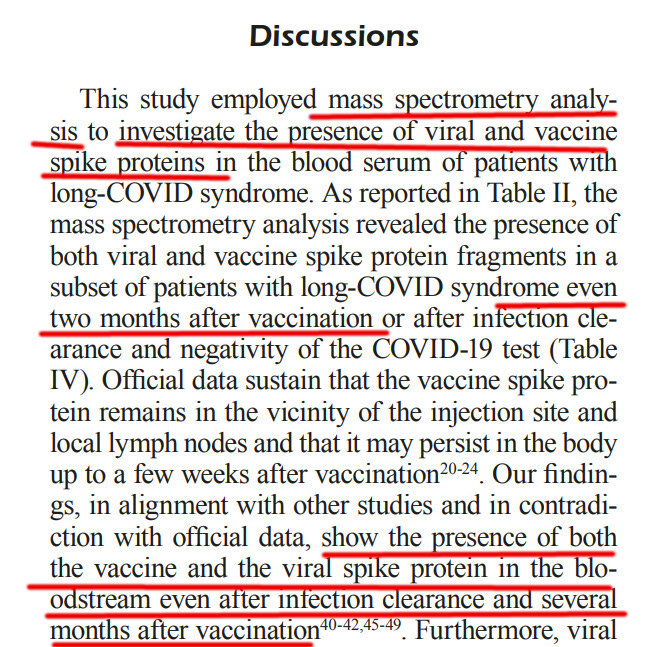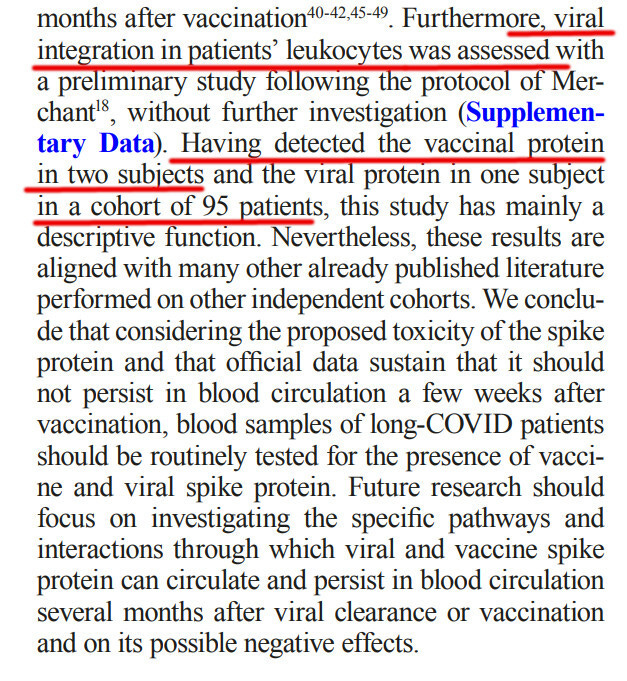 Prof. dr.
Mattias Desmet - 12 december
Prof. dr.
Mattias Desmet - 12 december12 minuten om te lezen
Beste vrienden,
Een paar weken
geleden heb ik een toespraak gehouden op de
vierde "International Crisis Summit" in het Roemeense parlement.
Hieronder vind je de tekst van de toespraak die ik had voorbereid en de
video-opname van de toespraak die ik heb gehouden. Meestal bereid ik geen
toespraak voor, simpelweg omdat ik me om de een of andere reden nooit aan het
plan houd. Uiteindelijk druk ik de woorden altijd uit zoals ze ter plekke en op
het moment komen. Deze keer was het niet anders - de tekst hieronder en de
daadwerkelijke toespraak zijn verschillend. Dat gezegd hebbende, hoop ik dat je
het zult lezen. In het begin herhaal ik wat dingen over totalitarisme die je
misschien kent als je naar mijn interviews hebt geluisterd. Maar de rest van de
tekst gaat over de perversie van het politieke discours in onze samenleving en
de behoefte aan een nieuw type politicus die propaganda en retoriek achter zich
laat en het spreken van de waarheid opnieuw waardeert.
Hartelijke
groeten,
Mattias
Prof Desmet kwam aan de beurt op dag 2 als 18de spreker.
Video Link: https://www.internationalcovidsummit.com/?fbclid=IwAR0EgX_cy6YXPaI2aMA7xI5P5R5XV6yASr6_vdUhKo34sj9Gh4FegfXfif4
Dear members of
the Romanian parliament,
Dear audience,
Dear ladies and gentlemen,
As some of you might know,
I wrote a book, titled The
Psychology of Totalitarianism. It is about a
new kind of totalitarianism that is emerging now, a totalitarianism which is
not so much a communist or fascist totalitarianism, but a technocratic
totalitarianism.
I have articulated my
theory on totalitarianism on so many occasions. I will only present the gist of
it here and move on to a problem which is particularly relevant for an address
in a political institution such as this parliament: the perversion of political
discourse in the Enlightenment tradition.
Here is in a nutshell what
I articulated on totalitarianism throughout the last years: totalitarianism is
not a coincidence. It is a logical consequence of our materialist-rationalist
view on man and the world. When this view on man and the world became dominant,
as a spontaneous consequence, a new elite ánd a new population emerged. A new
elite that excessively used propaganda as a means to control and steer the
population; and a population which lapsed more and more into loneliness and
disconnectedness, both from its social and its natural environment.
These two evolutions, the
emergence of an elite that uses propaganda and a lonely population, reinforced
each other. The lonely state is exactly the state in which a population is
vulnerable for propaganda. In this way, a new kind of masses or crowds emerged
throughout the last two centuries: the so-called lonely masses.
People fall prey to mass
formation to escape a pervasive feeling of loneliness and disconnectedness,
induced by the rationalization of the world and the ensuing industrialization
of the world and the excessive use of technology. They merge together in
fanatic mass behavior because this seems to free them from their lonely,
atomized state.
And that is exactly the big
illusion of mass formation: belonging to a mass doesn’t liberate a human being
from its lonely state. Not at all. A mass is a group that is formed, not
because individuals connect to each other, but because each individual
separately is connected to a collective ideal. The longer a mass formation
exists, the more solidarity they feel for the collective and the less
solidarity and love they feel for other individuals. That’s exactly why in the
end stage of mass formation and totalitarianism, every individual reports every
other individual to the collective, or to the state, if they think that other
individual is not loyal enough to the state. And in the end, the unthinkable
happens, with mothers reporting their children to the state and children their
parents.
The lonely masses distinguish
themselves in several respects from the physical masses of earlier times: they
can be much better controlled, they are less unpredictable than physical
masses, and they last longer, in particular if they are constantly fed by
propaganda through mass-media. The creation of long lasting lonely masses
through propaganda was the psychological basis for the emergence of the large
totalitarian systems of the twentieth century. Only if a mass formation exists
for decades can it be made the basis of a state system.
The emergence of lonely
masses led to Stalinism and Nazism in the beginning of the twentieth century
and now it might lead to technocratic totalitarianism. I described the
psychological processes involved in the emergence of lonely masses on many
occasions, and I won’t repeat it here.
Today, here, in the
Romanian parliament, a political institution, I address politicians. I want to
tell you that politicians have a particular responsibility in these times of
emerging totalitarianism. Totalitarianism, as Hannah Arendt said, is a diabolic
pact between the masses and the political elites. Political elites need to
contemplate –scrutinize the ethical qualities of their speech. There is
something wrong with political discourse. This is what I intend to say:
political discourse is perverted.
For instance, we got used
to the fact that politicians, once they are elected, never do what they
promised to do in their election speeches. How far are we removed from
political virtue as described by Aristotle. For Aristotle, the core of
political virtue was the courage to speak the Truth, or, to use the Greek term,
Parrhesia, bold speech, in which someone says exactly this what society
doesn’t want to hear, but which is necessary to keep it psychologically
healthy.
I am not so much accusing
individual politicians here; I am addressing political culture in general. And
even more, I am talking about a perversion that is inherent to the entire
tradition of Enlightenment. Our society is in the grip of a specific type of
lying, a kind of lying that is historically speaking relatively new, that
emerged for the first time after the French revolution, when the religious view
on man and the world was replaced by our current, rationalist-materialist
worldview. What am I talking about when I refer to this ‘new kind of lie’? I am
talking about the phenomenon of ‘propaganda’.
Propaganda is everywhere
around us. Public space is saturated with it. Recent years have illustrated
that abundantly, during the coronacrisis, during the Ukraine crisis, and now,
even more clearly, during the coverage of the Israel-Palestine conflict on both
mainstream and social media.
It is not that I do not
understand the motivation of those who choose for propaganda. They often start
from good intentions. Or at least: somewhere, they do believe in their good
intentions. Read the work of the founding fathers of propaganda, such as
Lippman, Trotter and Bernays. They believe that the only way for the leaders to
keep control in society and to prevent society of lapsing into chaos is
propaganda. The leaders cannot overtly impose their will anymore to the
population. Nobody would accept that within a materialist-rationalist society.
Hence, the only way to make the population do what the leaders want, is to make
them do what the leaders want without them knowing that they do what the
leaders want. In others words: the only way to control the population is
through manipulation.
The people in favor of
propaganda will argue that we can never tackle the challenges of climate change
and viral outbreaks through democratic means. They will ask: ‘Do you think
people will voluntarily give up their cars and flying holidays? To escape
disaster, we need technocracy, a society led by technical experts, and to
install technocracy, we need to mislead the population, we need to manipulate
them into technocracy’.
First of all, I want to
tell you that I don’t believe technocracy is a solution to the problem. But
that’s not what matters most. Let me tell you something: to try to create a
good society for the human being through manipulation, is a contradictio in
terminis. The essence and core of a good society is exactly the ethical
quality of public discourse. Man, in the end, essentially is an ethical being,
and to pervert man’s speech is to pervert man itself; to pervert political
speech is to pervert society itself.
To give up sincerity in
order to create a good society, is to try to build a good society by giving up
immediately, from the beginning, the essence of a good society (!). Truthful
speech is not a means towards an end, it is the end in itself; sincere speech
is what makes us human and humane.
This is crucial to
understand: propaganda is not a historical coincidence, it is a structural
consequence of rationalism. If you consider the psychological structure of our
current society, it’s fair to say that propaganda is the major guiding
principle. In a remarkable way, the pursuit of rationality during the tradition
of Enlightenment didn’t lead to more Truthful speech, as the founding fathers
of this tradition believed. Science would replace questionable religious and
other myths; society would finally be organized according to reliable
information instead of subjective conjectures. Now, a few centuries later, this
turned out to be an illusion. There has never been as much unreliable
information as now in public space.
The materialist-rationalist
view on man and the world, in a strange way, rather led to the opposite of what
it expected. As soon as we started to conceive the human being as a
mechanistic, biological entity, for whom the highest attainable goal was
survival, it became rather unfashionable to try to speak the Truth. Speaking
the Truth, the Ancient Greeks knew that very well, doesn’t maximize your
chances on survival. The Truth is always risky. ‘No one is hated more
than he who speaks the Truth’, Plato said. Hence, within a
materialist-rationalist tradition, speaking the Truth is something stupid to
do. Only idiots do it. That’s how the fanatic pursuit of rationality led us
astray, straight into the dark wood of Dante, ‘where the right road is wholly
lost and gone’.
This
materialist-rationalist view on man and the world – why do we actually cling to
it? It loves to present itself as the scientific view on man and the world. Let
me tell you that this is nonsense. All seminal scientist concluded exactly the
opposite: in the end, the essence of life always escapes rationality, it
transcends the categories of rational thinking. To name only one major
scientist: in the preface of a book of Max Planck, Einstein claimed that it is
a mistake to believe that science originates from supreme logical-rational
thinking; it originates from what he called a capacity for ‘einfühlung’ in the
object one investigates, which means as much as ‘a capacity to empathically
resonate with the object you are investigating’.
Rationality is a good thing
and we need to walk the path of rationality as far as possible, but it is not
the end goal. Rational knowledge is not a goal in itself; it is a stairway to a
kind of knowledge that transcends rationality, a resonating knowledge, the kind
of supreme intuition the martial arts of the Samurai culture aimed for
throughout their technical training. It is at that level that we can situate
the phenomenon of Truth.
This brings us closer to an
answer to the question: what is the remedy to the disease of totalitarianism?
Can we do something about totalitarianism? My answer is simple and straight:
yes. The powerless do have power.
Propaganda induced mass
formation is a fake, symptomatic solution for loneliness. And the real solution
lies in the Art of Sincere Speech. My next book, which I am writing now, is all
about the psychology of Truth. Truth, by definition, from a psychological point
of view, is resonating speech, it is speech which connects people, from core to
core, from soul to soul, speech that penetrates through the veil of
appearances, through the ideal images we hide behind, the imaginary shells we
seek refuge in, and reconnects the shivering and disconnected soul of one human
being to that of another human being.
Here we observe something
crucial: sincere speech is the real cure for loneliness – it reconnects people.
As such, it takes away the root cause of the major symptom of our rationalist
culture – mass formation and totalitarianism. And at the same time, sincere
speech also inhibits this symptom in a more straightforward way. It is well
known that, if there are some people who continue to speak in a sincere way when
mass formation is emerging, the masses do not go to the ultimate stage where
they start to think it is their duty to destroy each and everyone who doesn’t
follow the totalitarian ideology.
At every moment we chose to
speak out in a sincere way, no matter where this happens, in a newspaper or a
television interview, but equally well in the presence of only one other person
at the kitchen table or in the supermarket, we help to cure society from the
disease of totalitarianism.
You have to take this
literally. Society, as a psychological system, is a complex dynamical system.
And complex dynamical systems have the fascinating characteristic of so-called
sensitivity to initial conditions. To put it simple: the smallest changes in
one minor detail of the system, affect the entire system. For instance, the
smallest change in the vibration pattern of one water molecule in a boiling pot
of water, changes the entire convection pattern of the boiling water.
Nobody is powerless. And
hence, every single one of us is responsible. Each and everyone who speaks a
sincere word and succeeds in truly connecting as a human being to another human
being, in particular a human being with a different opinion, deserves to be
mentioned in the books of history, much more than a president or a minister who
engages in propaganda and fails to show the courage to speak sincerely.
The more I study the
effects of speech on the human being and on human living together, the more
hopeful I become and the more I see that we will overcome totalitarianism.
We shouldn’t be naïve when
we talk about the Truth. Endless are the atrocities in history committed by
people who believed they possessed the Truth. Truth is an elusive phenomenon;
we can enjoy its presence from time to time, but we can never claim it or
possess it.
Sincere speech is an art.
An art we have to learn step by step. An art we can progressively master.
That’s exactly why I started workshops on the Art of Speech – workshops in
which we practice that art in the same perseverant, disciplined way as any
other art is practiced.
Practicing this art implies
that we overcome our own fanatic convictions, and even more, our own narcissism
and ego. Truth speech is this kind of speech which penetrates through what I
call ‘the veil of appearances’. To practice it, you have to be willing to
sacrifice your ideal image; your public reputation. That is exactly what the Parrhesia
in Ancient Greek culture meant: speaking out, even if you know that those who
find their stronghold in the world of appearances will target you.
Truth-telling can make you
lose something. That is for sure. But it also gives you something. To be more
psychologically precise: Truth speech makes you lose something at the level of
the Ego and win something at the level of the soul. I am quite fascinated by
the way in which sincere speech leads to psychological strength.
I think Mahatma Gandhi
provides us with a splendid historical example. A few years ago, I started to
read his autobiography. I did so at the moment I started to realize that the
only efficient resistance against totalitarianism is non-violent resistance. Of
course this only applies to internal resistance, resistance from within the
totalitarian system. External enemies can destroy totalitarian systems from
without. That’s for sure.
But internal resistance, as
I mentioned, can only be successful if it is non-violent in nature. All violent
resistance will rather speed up the process of totalitarization, just because
it is always used by the totalitarian leaders to create support in the masses
to destroy each and everyone who goes against the system. Once I realized that,
I became interested in what Gandhi had to say in his autobiography.
I was happily surprised to
see the title: Experiments on Truth. And from the first pages, I learned
that for Gandhi, the core and essence of non-violent resistance is sincere
speech. His entire life, Gandi tried to improve the sincerity of his speech. He
did so in a simple, almost childish and naïve way, wondering every evening how sincere
he had spoken that day, where he had lied or when he could have spoken more
accurately or sincerely.
And here is something
important: in the beginning of his biography, Gandhi mentions something
magnificent. He says: I actually had no major talents. I was not handsome as a
man, I didn’t have much physical strength, I was not intelligent at school, I
was not a good writer and I was not talented as a speaker. But he had this
passion for sincerity and Truth. And this man, devoid of any major talents, but
with a passion for sincere speech, this man did something even the strongest
army in the world couldn’t do: he kicked out the English of India.
The better you start to see
the almost endless horizon of possibilities offered by speech, the more you realize:
it are words that rule the world. The human being can use words in a
manipulative way, as pure rhetoric, indoctrination, propaganda, or
brain-washing trying to convince the Other of something it doesn’t believe in
itself. Or it can use words in a sincere way, trying to convey something to a
fellow human being it feels inside itself. That is the most fundamental and
existential choice human beings face: to use words in one or the other way.
Dear politicians of Romania
and abroad, this is what I want to tell you today: it’s time for a metaphysical
revolution. And you are ought to play a major role in it. The series of crises
our society goes through are nothing else than a metaphysical revolution,
which, essentially, boils down to this: the switch from a society that
functions according to the propaganda principle to a society that is oriented
towards Truth. We need a new political culture, a culture that re-appreciates
the value of Truth Telling. We need a new political discourse, a political
discourse that leaves the shallow, hollow rhetorics and propaganda behind and
speaks from the soul, from the heart; we need politicians to become true
leaders again, leaders who lead rather than mis-lead the population.
Bron: https://www.tegenwind.tv/post/prof-dr-mattias-desmet-spreekt-in-het-roemeens-parlement


















